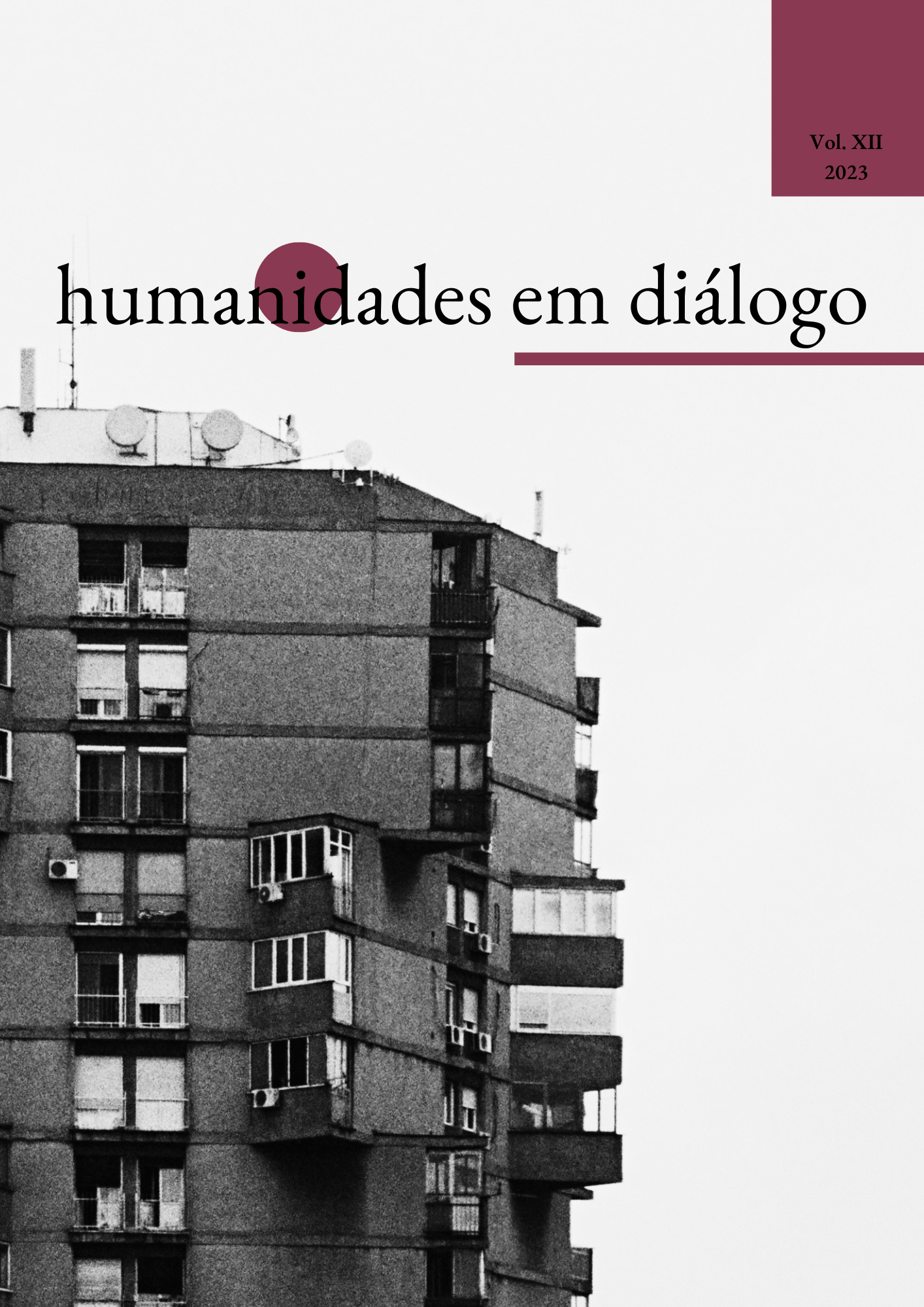In the Beginning, God created: cosmogony as a rhetorical strategy for the reconstruction of collective ties during the 6th and 5th centuries BCE
DOI:
https://doi.org/10.11606/issn.1982-7547.hd.2022.192472Keywords:
Judah, Exile, Cosmogony, Memory, TraumaAbstract
In this article, we intend to study how the prophetical tradition of Second Isaiah uses the theme of Creation as a rhetorical and mnemonic resource during the reconstruction of the Judean community in exile after the deportations of the 6th and 5th centuries BCE. For this, we resorted to Karel van der Toorn's studies about the impacts of diasporic phenomena in the construction of collective identities in Antiquity. Afterwards, we discussed collective memory and its mechanisms of intergenerational transmission after traumatic and destructive experiences. Finally, with chapters 43 and 44 of Isaiah in mind, we analyzed how the oracles mention and reframe the theme of Creation, examining its possible impacts on the reconstruction of collective ties and cultural representations during the diaspora of the 6th and 5th centuries BCE.
Downloads
References
AHN, John. Exile as Forced Migrations. A Sociological, Literary, and Theological Approach on the Displacement and Resettlement of the Southern Kingdom of Judah. Berlin: De Gruyter, 2011.
ALSTOLA, Tero. Judeans in Babylonia. A Study of Deportees in the Sixth and Fifth Centuries BCE. Leiden: Brill, 2020.
ASSMANN, Aleida. Espaços de Recordação: Formas e Transformações da Memória Cultural. Campinas: Editora Unicamp, 2011.
BERLEJUNG, Angelika. Social Climbing in the Babylonian Exile. In: BERLEJUNG, Angelika;
MAEIR, Aren; SCHÜLE, Andreas. (orgs.). Wandering Arameans. Arameans Outside of Syria. Textual and Archeological Perspectives. Wiesbaden: Harrassowitz Verlag, 2017.
BERNBECK, Reinhard. Imperialist Networks: Ancient Assyria and the United States. Present Pasts, London, v. 2, n. 1, p. 142-168, 2010.
BÍBLIA de Jerusalém. 12 ed. São Paulo: Paulus, 2017.
BIDMEAD, Julye. The Akitu Festival. Religious Continuity and Royal Legitimation in Mesopotamia. New Jersey: Gorgias Press, 2002.
CANDAU, Joel. Memória e Identidade. São Paulo: Contexto, 2019.
GOLUB, Mitka; ZILBERG, Peter. From Jerusalem to Al-Yahudu. Journal of Ancient Judaism, Leiden, v. 9, n. 3, p. 312-324, 2018.
HALBWACHS, Maurice. La Mémoire Collective. Paris: Presses Universitaires de France, 1968.
HALBWACHS, Maurice. Los Marcos Sociales de la Memoria. Barcelona: Anthoropos, 2004.
HEFFELFINGER, Katie M. I Am Large, I Contain Multitudes. Lyric Cohesion and Conflict in Second Isaiah. Leiden: Brill, 2011.
HIRSCH, Marianne. The Generation of Postmemory. Writing and Visual Culture after the Holocaust. Nova York: Columbia University Press, 2012.
INGOLD, Tim. The Perception of the Environment. Essays on livelihood, dwelling and skill. London: Routledge, 2000.
IRUDAYARAJ, Dominic. Idol-taunt and exilic identity: A Dalit reading of Isaiah 44:9-20. In: GUDME, Anne Katrine; HJELM, Ingrid. (orgs.). Myths of Exile: History and Metaphor in the Hebrew Bible. London: Routledge, 2015.
LIPSCHITS, Oded. The Fall and Rise of Jerusalem. Judah under Babylonian Rule. Winona Lake: Eisenbrauns, 2005.
LIVERANI, Mario. The Growth of the Assyrian Empire in the Habur/Middle Euphrates Area: a New Paradigma. State Archives of Assyria Bulletin, Helsinki, v. 2, n. 2, p. 81-98, 1988.
LIVERANI, Mario. Antigo Oriente. História, Sociedade e Economia. São Paulo: Edusp, 2020.
MUCCI, Clara. Beyond Individual and Collective Trauma: Intergenerational Transmission, Psychoanalytic Treatment, and the Dynamics of Forgiveness. London: Karnac, 2013.
PEARCE, Laurie; WUNSCH, Cornelia. Documents of Judean exiles and West Semites in Babylonia in the collection of David Sofer. Bethesda: CDL Press, 2014.
REDE, Marcelo. Imagem da violência e violência da imagem. Guerra e ritual na Assíria (séculos IX – VII AC). Varia Historia, Belo Horizonte, v. 34, n. 64, p. 81-121, 2018.
REDE, Marcelo. Al-Yahudu: os arquivos do exílio babilônico. Arquivo Maaravi: Revista Digital de Estudos Judaicos da UFMG, Belo Horizonte, v. 13, n. 25, p. 1-16, 2019.
ROM-SHILONI, Dalit. The Untold Stories: Al-Yahūdu and or versus Hebrew Bible Babylonian Compositions. Die Welts des Orients, Berlin, v. 47, n. 1, p. 124-134, 2017.
SALIBA, Elias Thomé. História Cultural do Humor: Balanço provisório e perspectivas de pesquisa. Revista de História, São Paulo, n. 176, p. 1-39, 2017.
SILVERMAN, Jason. Persian Royal-Judean Elite Engagements in the Early Teispid and Achaemenid Empire. The King’s Acolytes. London: T&T Clark, 2020.
TIEMEYER, Lena-Sofia. For the Comfort of Zion: The Geographical and Theological Location of Isaiah 40-55. Leiden: Brill, 2011.
VAN DER TOORN, Karel. Becoming Diaspora Jews. Behind the Story of Elephantine. New Haven: Yale University Press, 2019.
WYDRA, Harald. Generations of Memory: Elements of a Conceptual Framework. Comparative Studies in Society and History, Cambridge, v. 60, n. 1, p. 5-34, 2018.
Downloads
Published
Issue
Section
License
Copyright (c) 2023 Enzo Snitovsky Onodera

This work is licensed under a Creative Commons Attribution-NonCommercial-NoDerivatives 4.0 International License.
How to Cite
Funding data
-
Fundação de Amparo à Pesquisa do Estado de São Paulo
Grant numbers 2020/06602-6



